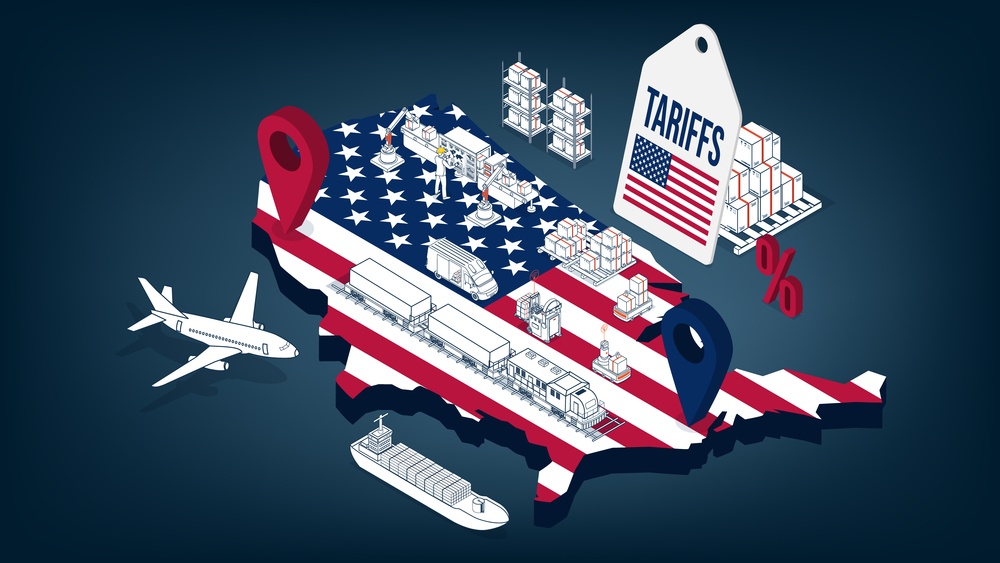In all the recent discussion regarding USAID, it is good to look to some prescient wisdom from the past, to key development economists who have shaped the field and have been proven right so often because of their insightful analysis. In discussing foreign aid and development economics, it would be impossible (or negligent) to avoid the work of P.T. Bauer.
Bauer has been recognized as a pivotal scholar in development economics by non-Austrians, however, he has likewise been praised by several prominent scholars in the Austrian tradition. He is cited as a key scholar in Ralph Raico’s “The Theory of Economic Development and the European Miracle,” his book was reviewed favorably by David Gordon, he was mentioned in “The History of Foreign Aid Programs” by Tom Woods, and David Chilton’s Productive Christians in the Age of Guilt Manipulators was dedicated to him. This article seeks to present some of the insights of P.T. Bauer, in his own words, from his Dissent on Development: Studies and Debates on Development Economics (1971).
Foreign Aid Failure
Before proceeding to Bauer’s insights, we should set up some definitions, context of foreign aid, and further reading. First, foreign aid, according to Bauer, is “a transfer of resources from the taxpayer of a donor county to the government of a recipient county.” This definition is simple, but important, because it reminds us that foreign aid is not compassionate charity from the people of one country to the people of another. Foreign aid is one government coercively taxing its citizens to transfer money and/or resources to the government of another country. Given this insight, this article would be remiss if it did not include the pithy quote from Ron Paul on foreign aid,
The same is true of all foreign aid—it’s nothing more than a program that steals from the poor in a rich country and gives to the rich leaders of a poor country.
As if this were not problematic enough, there is also the fact that foreign aid does not work and never did. Foreign aid does not raise poor countries out of poverty, in fact, it is ironically counterproductive. Just to give a brief summary from a Cato policy handbook from 2022: there is no correlation between aid and growth; aid that goes into a poor policy environment does not work and contributes to debt; aid conditioned on market reforms has failed; countries that have adopted market-oriented policies have done so because of factors unrelated to aid; there is a strong relationship between economic freedom and growth. By lending to governments, USAID and multilateral development agencies expand the state sector at the expense of the private sector in these poor countries. Foreign aid has financed governments in anti-market policies,
Foreign aid has thus financed governments, both authoritarian and democratic, whose policies have been the principal cause of their countries’ impoverishment. Trade protectionism, byzantine licensing schemes, inflationary monetary policy, price and wage controls, nationalization of industries, exchange-rate controls, state-run agricultural marketing boards, and restrictions on foreign and domestic investment, for example, have all been supported explicitly or implicitly by US foreign aid programs.
What ought to be even more damning is that the world has seen more economic growth over the past 50-70 years and more money to foreign aid than ever, yet failure still persists. In “Peter Bauer and the Failure of Foreign Aid,” Andrei Shleifer reports that, “Countless empirical studies have failed to find beneficial effects of official foreign aid. The consensus that aid has failed is nearly universal among those who look at the data.”
For some further work on this topic, see “Exploring the Failure of Foreign Aid: The Role of Incentives and Information” and especially the work of William Easterly. For an interesting documentary about international poverty, development, and the effects of aid bureaucracies on poor countries, watch Poverty, Inc. (Amazon).
P.T. Bauer’s Wisdom
P.T. Bauer takes on several economic and empirical fallacies regarding foreign aid and development. Among these, he smashes the notions that foreign aid is necessary for economic development, that it alleviates poverty, that there is a “vicious cycle of poverty” that keeps poor countries poor, that poor people cannot generate capital because of low incomes, that the poverty of poor countries is caused by wealthy Western countries, that aid can work if contingent on market reforms, that it reaches intended recipients, and many more. Below are some of the insights of Bauer in his own words from Dissent on Development.
Foreign Aid Is Neither Necessary nor Sufficient for Development
FOREIGN AID is demonstrably neither necessary nor sufficient to promote economic progress in the so-called Third World and is indeed much more likely to inhibit economic advance than it is to promote it. This is so because the inflow of foreign aid sets up major adverse effects on the factors behind economic progress. This has been so since the beginning of foreign aid. (p. 41)
Foreign Aid Assumes that Progress Must Come from Outside
Of course, Bauer also makes a brilliant, yet simple, point—if countries can only develop with the external aid of other wealthy countries, then how did any country become wealthy in the first place? At one point, all countries were poor; and neither exploitation nor causeless, materialist views of capital are sufficient to explain economic growth.
This suggestion [that the poor are helpless because of their surroundings] reinforces the attitude widely prevalent in the underdeveloped world . . . that the opportunities and the resources for the economic advance of oneself or one’s family have to be provided by someone else—by the state, by one’s superior, by richer people, or from abroad. This attitude is in turn one aspect of the belief of the efficacy of external forces over one’s destiny. In parts of the underdeveloped world this attitude goes back for millennia and . . . has been reinforced by the authoritarian tradition of the society. It is an attitude plainly unfavourable to material progress. (p. 101)
It is unwarranted and distasteful condescension to argue that the peoples of Eastern Europe or of the Third World wish or crave for material progress but, unlike the West, cannot achieve it without donations from abroad. (p. 46)
The vicious circle argument implies that while the West was able to advance without external donations, the peoples of the Third World, while craving for material progress, cannot attain it without donations from the West. This makes us feel superior even when we beat our breasts for alleged damage the West is said to have inflicted on poor countries. (p. 47)
Subventions from abroad promote or reinforce the belief that economic improvement depends on outside forces. The prospect of subsidies encourages governments to seek economic improvement through beggary or blackmail from external sources rather than to consider the potentialities of change at home. (p. 48)
Aid Does Not Alleviate Poverty, but Entrenches It
Development aid is thus clearly not necessary to rescue poor societies from a vicious circle of poverty. Indeed, it is far more likely to keep them in that state. It promotes dependence on others. It encourages the idea that emergence from poverty depends on external donations rather than on people’s own efforts, motivation, arrangements, and institutions. (p. 46)
It is official development aid that can create a vicious circle. Poverty is instanced as ground for aid; aid creates dependence and thus keeps people in poverty. (p. 46)
Aid Empowers Corrupt and/or Authoritarian Governments
Unlike manna from heaven, which descends indiscriminately on the whole population, these subsidies go to governments…. They therefore increase the resources, patronage, and power of the government (that is, the rulers), compared to the rest of society. (p. 48)
External subsidies have often helped to sustain governments whose policies have proved so damaging that only the subsidies have enabled them to remain in power and continue with such destructive policies. Altogether, the subsidies have contributed significantly to the disastrous politicisation of life in the Third World since World War II. (p. 48)
Aid Discourages Productive Reform and Distort Economic Incentives
When economic or social life is extensively politicised people’s fortunes come to depend on government policy and administrative decisions. The stakes, both gains and losses, in the struggle for power, increase greatly. These circumstances encourage or even force people to divert attention, energy, and resources from productive economic activity to concern with the outcome of political and administrative decisions; and the deployment of people’s energy and resources necessarily affects the economic performance of any society. (p. 48)
Foreign Aid Sustains Damaging Government Policies
By maintaining a minimum level of consumption, the subsidies avert total collapse and conceal from the population, at least temporarily, the worst effects of destructive policies. These subsidies also suggest external endorsement of damaging policies. These results in turn help the government to remain in power and to persist in these policies without provoking popular revolt. (p. 50)
Indeed, as we have seen, the criterion of the allocation of much Western aid does nothing to discourage policies of impoverishment or immiseration and is in fact more likely to reward them. Thus, the more damaging the policies, the more acute becomes the need, the more effective become appeals for aid…. The destructive policies of these governments have been largely responsible for the mass misery which in turn has been so effective in eliciting large sums of both official aid and private charity. (p. 50)
For rulers in these countries, this is the incentive structure: the more miserable the people are, the more foreign money the rulers receive.
Aid Does Not Reach the Intended Recipients
Not only does aid money go to foreign governments, but it is often eaten up by individuals within aid and development bureaucracies, often creating unwanted and unfinished projects in other countries.
The argument for aid most widely canvassed since the early 1980s has been that it improves the lot of the poorest in LDCs. But the subsidies do not go to the pathetic figures pictured in aid propaganda. They go to their rulers, who are often directly responsible for the hardship of their subjects. Even when this is not so, it is still the case that the condition of the poorest is very low among the priorities of aid recipients, as is evident from their policies, including the patterns of government spending. (p. 50)
Over most of the Third World there is no machinery for state relief of acute poverty and need. Thus, even if a recipient government wanted to use aid to help the poorest, this can be difficult, even impossible. What is more important, such help may not accord with the political or personal interests or ideological priorities of the Third World rulers, or indeed with local mores. In fact, it often conflicts with these priorities. This situation is evident in multiracial, multitribal, or multicultural countries. (p. 50)
Poor People Can and Do Generate Capital
Poor people can generate or secure sufficient funds to start on the road to progress if they are motivated to improve their material condition and are not inhibited by government policy or lack of public security. (p. 45)
What has to be remembered and emphasised is that having capital is the result of successful economic performance, not its precondition. Economic performance depends on personal, cultural, and political factors, on people’s aptitudes, attitudes, motivations, and social and political institutions. Where these are favourable, capital will be generated locally or attracted from abroad. (pp. 45-46)
























